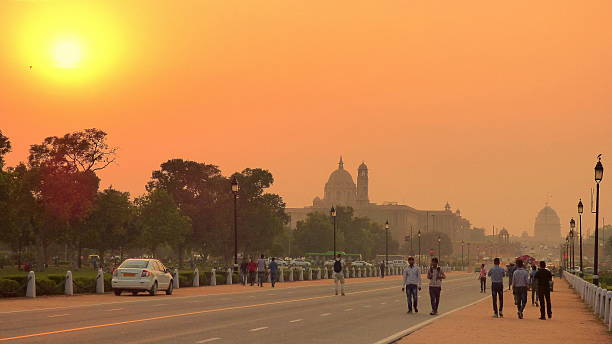Authorities in Delhi have decided to close schools early for the summer break due to extreme temperatures, which have soared to 47.4°C (117°F).
The decision, announced with immediate effect, shortens the school term by a few days. This action follows a severe heatwave that has gripped the city and other states such as Haryana, Madhya Pradesh, Punjab, and Rajasthan.
India’s weather bureau has issued warnings about the severe heatwave, with Delhi experiencing its highest temperature of the year in the Najafgarh suburb.
Other regions are also facing intense heat conditions, contributing to a broader pattern of longer and more extreme heatwaves due to climate change, as indicated by scientific research.

The Indian Meteorological Department has highlighted the health risks associated with the heat, particularly for vulnerable groups including infants, the elderly, and those with chronic illnesses. Last year, temperatures in Delhi reached an even higher 49.2°C (120.5°F), underscoring the growing severity of heatwaves.
In addition to the heatwave, India is in the midst of a six-week-long election, with the next round of voting scheduled for Saturday.
Voter turnout has decreased, likely influenced by the unusually high temperatures and the strong expectation that Prime Minister Narendra Modi will secure a third term. To address the impact of heatwaves on the electoral process, the Election Commission has established a task force.
Meanwhile, southern states like Tamil Nadu and Kerala have faced heavy rains recently, and severe storms last week caused significant damage in other parts of the country. In Mumbai, a storm resulted in a billboard collapse that tragically killed 16 people and left many others injured.

